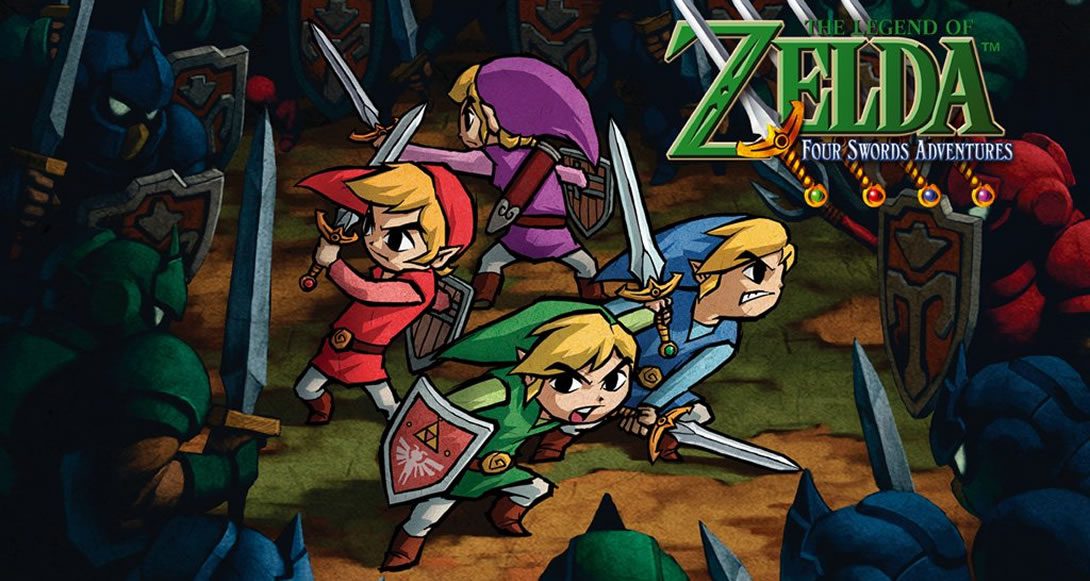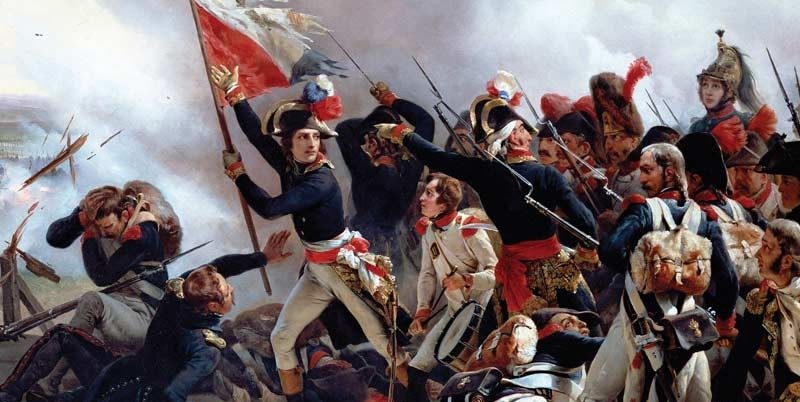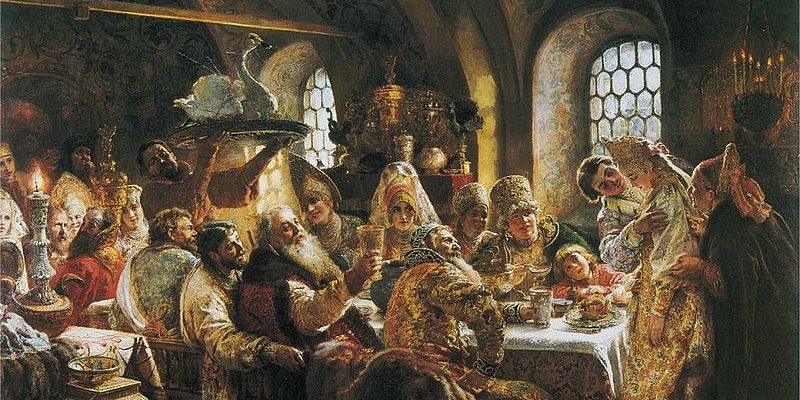Legend of Zelda – Four Swords Rules v1.3

If you are looking for a fun little game to run as a one-shot you could try out 4 Swords. It uses a simplified version of D&D’s 4th Edition rules and balances fighting monsters with competing/cooperating with 3 other Link characters.
Here’s the latest version of the rules we are using for this game. I’ve run 2 sessions now and it’s been fun for both me the GM and the players.
Glossary / Translation of Terms from D&D 4e
- Hearts (replaces HP)
- used to measure how many times you can be hit by an enemy before you die.
- represented by red bar above character
- you start with 5 hearts, this is your max hearts value
- your total maximum number of hearts increase by 1 when you collect a heart container
- Healing Surges – There are no healing surges, since power is regained by collecting hearts
- Action Points – There are no action points
- Defense (Replaces AC, Reflex, Fortitude and Will)
- starting defense is 15 (base 10 + total max hearts)
- defense can be improved by gaining more hearts
- there are no shields in the current build of this game
- Power (replaced Strength Modifier)
- is used as a bonus on attack rolls
- starts at 5, matching up with total max hearts
- Initiative
- Rolled using 1d20 + POWER when a new board is loaded.
- Magic Meter
- used to track points for special item use and power use
- represented by green bar above player
What can I do on my turn?
On each turn you can move, complete a minor action and a standard action
MOVES
1) Regular Move – 5 squares
- You can move up to 5 squares each turn for your move action. This includes any direction, including diagonal movement
- If you move through a square that is adjacent to an enemy’s square you will offer an opportunity attack
2) Shift (without mark) – 1 square
- For your move action you can use a shift to move 1 square and avoid opportunity attacks for that one movement.
- No additional movement can be made once you shift.
3) Dash – 3 squares
- You can dash 3 squares at a single opponent for a +2 to your attack.
- You must be able to run 3 squares without hitting obstacles, enemies or other players
- You will take opportunity attacks if you pass through any squares with enemies in adjacent squares
- No additional movement can be made once you roll.
4) Roll – 3 squares
- you can roll 3 squares in any single direction and avoid all opportunity attacks.
- You must be able to roll 3 squares without hitting obstacles, enemies or other players
- No additional movement can be made once you roll.
5) Mark
- If you target/mark an opponent, you can shift any and all of your moves and avoid opportunity attacks from that marked enemy.
- Any other enemies will still get opportunity attacks normally.
- A marked opponent will provide you with an opportunity attack when it attacks another player. It will also take a -2 penalty to attack rolls against other players
- A mark ends when the player dies, when the mark dies, when another player marks the same opponent or when the player selects a new mark
MINOR ACTIONS
You can do the following as minor actions
- switch weapon/items
- collect a rupee
- collect a heart
- give a heart (to any adjacent Link or move and then give to an adjacent Link)
STANDARD ACTIONS
1) Attack You can not attack another player. You can only attack enemies or obstacles. You can attack with:
Sword
- Click macro button to attack with your sword (1d20+POWER, 1d4 hearts damage)
- Attacking with your sword will consume no magic meter points
Special Items
- As you progress through the game you will be given access to using additional macros so you can use/attack with items you pick up. These items may gain additional powers as you progress
- Items can be used without any skill check outside of combat
- You may find that using certain items to attack provide attack roll bonuses OR damage roll bonuses. This will be revealed by the GM on a case by case basis and will be critical when facing bosses.
- Items available during gameplay may include:
- boomerang
- hammer
- bomb
- bow and arrow
- hookshot
- shovel
- slingshot
- flippers
- musical instruments
2) Special Attack
Special attacks consume Magic Meter points
- Spin Attack (5 points)
- Sword Beam – (5 points)
- Use of certain item power-ups also consume Magic Meter points such as ice arrow, fire arrow, ice rod, fire rod
3) Bump
For your turn, you can choose to bump a player who just picked up a rupee gem
To bump a player, you need to be able to enter an adjacent square using your move (5 squares) Roll your power against their power. Attackers 1d20 + POWER MOD vs Defenders 1d20 + POWER MOD The losing roller moves away from the other player 1 square. No damage. Using a bump will have a negative impact on your overall score (you will take a -1 to total points) – so use this technique wisely.
COMBAT ADVANTAGE
- Any player or enemy that is hit from behind offers combat advantage of +2 to attack rolls
- Combat advantage is played the same as normal D&D 4e rules
DEATH
Enemies and players die immediately when they reach zero hearts
- Enemy Death – Enemies disappear in a puff of smoke and may leave behind rupees, hearts or other items
- Player Death
- A player will lose one turn when they respawn and will disappear from the board from the duration of one turn.
- The cost to respawn is 25 rupees. If a player has less than 25 rupees, they will start with 0 rupees.
- Players respawn at the starting position for the current screen with 5 hearts (regardless of max hearts), the same statistics, points and items.
- Players will keep any other score they have received such as enemies defeated, allies healed
- If all 4 players die in the same round, then the game is over.
HOW DO I WIN
The most points wins. Points are the total of:
- enemies defeated (worth 1 each)
- heart given (worth 1 each)
- total rupees collected
- minus player deaths (x5)
- minus bumps
- bonus 10 given to:
- any players who did not die
- player who defeated the most enemies
- player who collected the most rupees
- player who gave the most hearts





